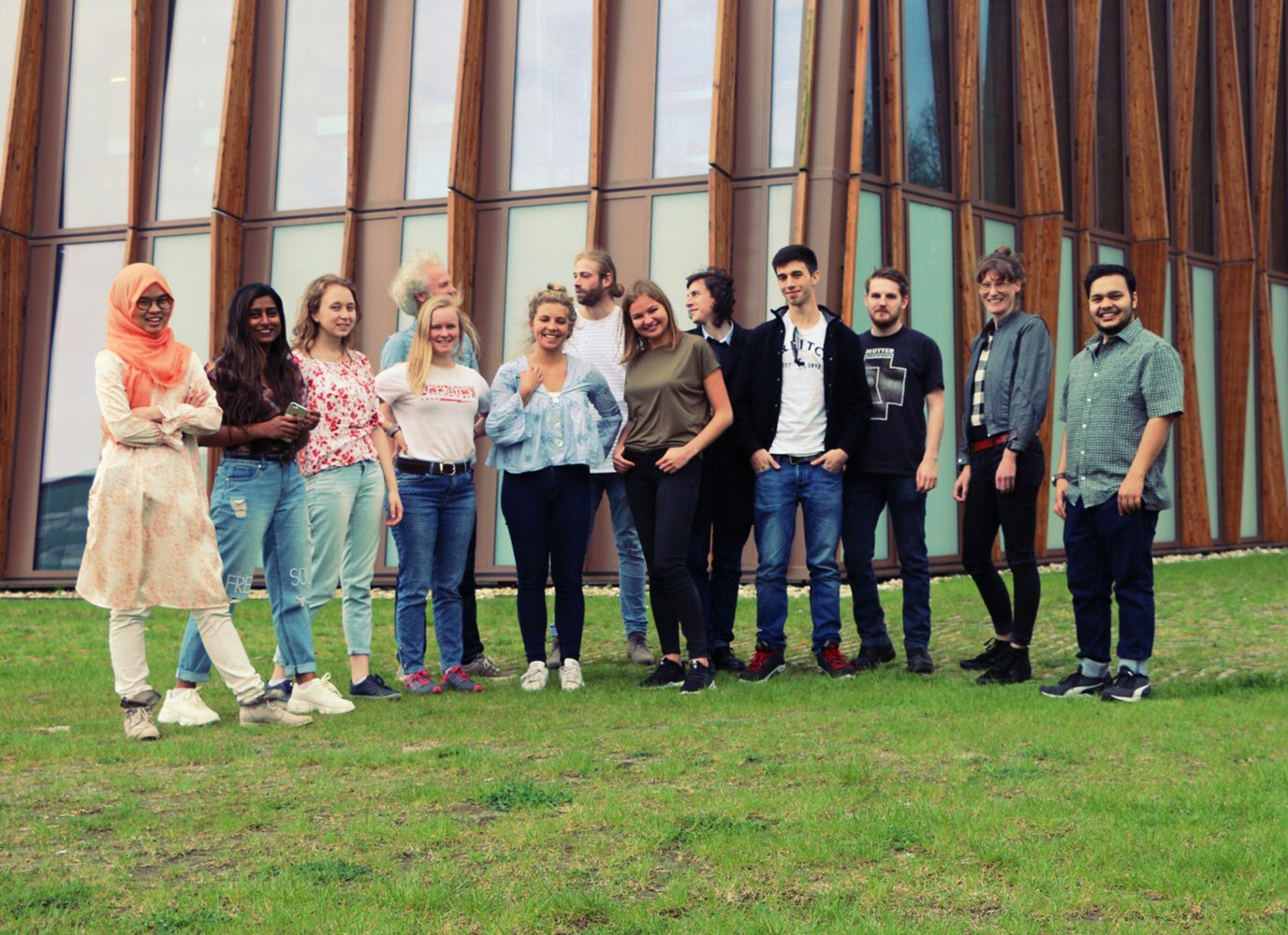iGEM 2019: team RUG wint gouden medaille
Team RUG heeft met hun bio-QR-code een gouden medaille gewonnen tijdens jaarlijkse iGEM (international Genetically Engineering Machine) wedstrijd in Boston. De medaille werd uitgereikt tijdens de afsluitende award ceremony. Het winnen van een gouden medaille betekent dat het team uitzonderlijk heeft gepresteerd met hun project.
Om een gouden medaille te winnen moet je als team de jury overtuigen dat je aan alle medaillecriteria voldoet. Je moet bijvoorbeeld kunnen aantonen dat het door jou bedachte technische systeem werkt, dat je problemen in jouw ontwerp hebt onderzocht en aangepakt en dat je hebt nagedacht over hoe jouw project van toegevoegde waarde is voor de wereld.
De 'bio QR', een QR-code gemaakt van bacteriën die groeit en zichtbaar wordt onder bepaalde omstandigheden en die bedoeld is om de veiligheid rond het digitaal delen van informatie te verbeteren, voldeed dus aan alle criteria. Daarmee was de deelname aan iGEM vanuit de Faculty of Science and Engineering ook dit jaar weer een succes.
iGEM-competitie
De iGEM-competitie vond plaats van 31 oktober tot en met 4 november 2019 bij MIT Boston, Verenigde Staten. In totaal waren er meer dan 300 deelnemende teams van over de hele wereld, waarvan zeven uit Nederland. iGEM is de international Genetically Engineering Machine competitie, die elk jaar in Boston wordt gehouden. iGEM biedt multidisciplinaire teams van studenten de mogelijkheid om oplossingen te vinden voor wereldwijde problemen met behulp van synthetische biologie.
Video 'wat is de bio-QR-code'

Meer nieuws
-
17 februari 2026
De lange zoektocht naar nieuwe fysica
-
10 februari 2026
Waarom slechts een klein aantal planeten geschikt is voor leven
